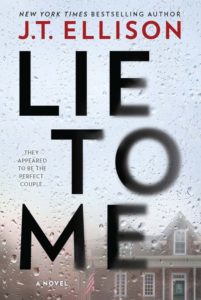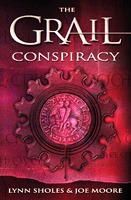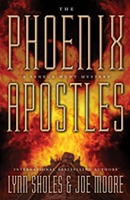By J.T. Ellison
To prepare for an upcoming meeting, I’ve been looking at a few of my earliest books. Last night I was reading my debut, and it was somewhat frustrating. Now, I can see all the mistakes: the thought inversions inside paragraphs, how things start slowly because I was setting up all the characters, dialogue interruptions—typical rookie mistakes. Throat clearing, as I like to call it.
Then, I didn’t know these things. I had passion and verve for storytelling, but I wasn’t the professional writer I am now, not at all. Yes, I’m being rather hard on my debut self, but I’d love to take apart that first book and make it more in line with my later ones. Happily, it remains a fan favorite. These are tiny details readers aren’t going to fuss over. It’s just me and my overdeveloped sense of perfectionism.
Nineteen books later, I am a much stronger writer. I know how vital it is to get the story started immediately instead of worrying about setting things up. My voice is the same, but the stylistic choices have changed. I go for the impact immediately, don’t write nearly as flowery, work out the plots beforehand to assure the greatest story impact.
That’s what two million words and ten years does for a writer.
But it’s not enough, is it? It’s never enough. We want to learn and grow, to push ourselves. And to do that, you have to get better at your craft.
I liken this struggle to baseball. You can’t win the World Series every year. But if you have all the right components, you can make it to the playoffs regularly. That’s what I try to do. I try so hard to make every book the best I’ve ever written. I push all the boundaries, pull out all the stops, tweak and caress my story and my characters. I want the World Series every time, damn it, though sometimes that is out of the writer’s control. Life, the market, the world get in the way.
But the playoffs are achievable, if you work hard and never give up.
Every once in a while, that World-Series-possible book comes along. You pull together something new and different. A book that stands apart. These are the books that nearly kill you, that break every rule you’ve ever learned, that keep you up late, that drive you to the page daily. They help you level up your writing.
I’ve had three of these books. Three out of nineteen. Three books that I knew were the best work I had in me at the time. That I’d left everything on the page. The old “open a vein and bleed” adage stands true. When you leave it all on the page, it will show.
One of these three books comes out September 5. It’s called LIE TO ME, and I pushed every boundary I could with it. From structure to setting to topics and POV, I forced myself to take chance after chance to make it work.
Will it? I don’t know. Only the readers can truly affirm that for us. I do wonder if ten years from now, I’ll look at it and cringe. If I’ll see the mistakes, see the paths less traveled I should have taken.
Here are some suggestions for ways to level-up your own writing:
- Read widely, in and out of your genre
Though I write almost exclusively in the thriller world, I get some of my best ideas from reading YA fantasy. Fantasy world-building is an incredible guide to developing solid crime fiction. It gives you a new landscape to think about, and for me, that tends to jar loose all kinds of ideas on how to expand my own concrete universe. I also keep up with several brilliant crime fiction writers whom I greatly respect, to see how they grow over the years. Karin Slaughter, Lisa Gardner, and Daniel Silva come to mind. These are writers at the top of their game, and still getting better with each book. They are utterly inspiring to me, living proof it’s possible to grow as a writer.
- Travel to new and interesting locales
- This is writing 101, really, but putting yourself in the shoes of other people will truly allow you to explore different story ideas and expand your realities. Whenever I have a foreign locale in my books, I make a point to travel there while the book is being constructed, or during editorial. I’ve saved myself from major mistakes by doing this. Sometimes, the Googles don’t give you the best information. Plus, it is my firm belief you have to smell a city, taste its food, walk its streets, to get to its heart. It’s something no one but you can process and extrapolate onto the page, almost as important as the concept of voice.
- Do some hands-on research
- One of my books that leveled-up did so because I finally plucked up the courage to attend several autopsies. I write a medical examiner, and while I’d done a ton of research to make her character real––virtual autopsies, reading autopsy reports, detailed conversations with medical examiners and death investigators—it wasn’t until I stuck my head inside a chest cavity that I got a real sense for what my character’s job entailed. Hearing the saws, dissecting tissues, taking vitreous fluids, discovering the cause of death, it all changed me, and as such, changed my writing. The book I was working on came alive in so many ways when I had that textural context to pull from, and I still draw on those experiences to explore my character’s world. For my co-written FBI series, I visited the FBI in New York. For my homicide squad series, I did ride-alongs. New experiences are the easiest way to take a step forward in your work.
- Get out of your comfort zone
- If you only write first person POV, make a shift to close third. If your mired in past tense, switch to first. I literally just finished a novel draft that simply wasn’t working, because it was written in third close past tense. I shifted it to present tense and it was suddenly real, visceral, and lightning fast. Was it a lot of work to change 100k from past to present? Yes. But it was right for the story. Being lazy with your writing is a surefire way to get caught in a rut.
- Move your series/standalone to a new locale, or spin off a character for a new storyline
- My novels are mostly based in Nashville, Tennessee. There came a point, eight novels into the series, that it was getting rather hard to believe the characters were facing the same issues yet again. So I took the drastic step of spinning off a main character and moving her to another city. Bam! Immediately, the world grew larger, the canvas was broader, and I had a whole new set of people and locations to work with. This move probably saved my writing career, by the way… it breathed new life into a beloved but squarely mid-list series.
- If you write series, try a standalone, and vice versa
- When I got into publishing, series were all the rage. Now, standalones are wildly popular. The market shifts. Be willing to shift with it, and you could truly up your game. Now, this isn’t a recommendation to chase trends, not at all. You still need your own original, brilliant concepts. But if the market is clearly moving one way, and you stay put, you may see publishing stride ahead without you. Take a chance, and see what shakes out.
Have you written a book or story you feel elevated your craft? Do you have any leveling-up advice of your own? And for the readers, have you read one by a favorite author that’s a real standout?
So many thanks for having me on today! What an honor to speak to TKZ’s awesome audience!
J.T. Ellison is the New York Times and USA Today bestselling author of eighteen critically acclaimed novels, including LIE TO ME, NO ONE KNOWS, WHAT LIES BEHIND, and ALL THE PRETTY GIRLS, and is the coauthor of the “A Brit in the FBI” series with #1 New York Times bestselling author Catherine Coulter. J.T. also cohosts the EMMY® Award-winning television series A Word on Words.




